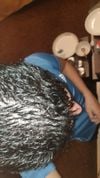community POST ACCUTANE HAIR LOSS- Please help and leave your experiences and suggestions
A user named Medical_Opinion8120, a 23-year-old female, is experiencing hair loss potentially due to a past accutane course. She has tried minoxidil without success and is currently taking iron and zinc supplements.
